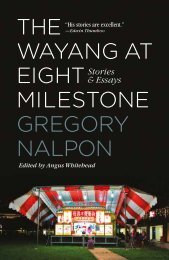View Sample - Epigram Books
View Sample - Epigram Books
View Sample - Epigram Books
You also want an ePaper? Increase the reach of your titles
YUMPU automatically turns print PDFs into web optimized ePapers that Google loves.
xiixiiiof The Straits Times. Six of the Best draws its originating impulse fromthe indictment of American teenager Michael Fay for vandalism, anevent that sparked much discussion and brouhaha in the internationalpress. Even Home can be said to have been seeded in the context of anaging society with scant provisions for the elderly, while Machine, asprivately divulged by the playwright himself, was spawned of a midlifecrisis he personally underwent, when issues of fidelity and the dynamicbetween the sexes rose to the fore as a result of flagging endorphins,marital stagnancy and the andropause. With the exception of the lastplay, therefore, the rest are premised on momentous occasions that havegenerated much controversy. These plays therefore serve to encouragefurther constructive debate in retrospect, where time confers thenecessary detachment to prevent visceral involvement that clouds therational and impartial.If renowned historian E. H. Carr defines history as “a continuousprocess of interaction between the historian and his facts, an unendingdialectic between the present and the past”, then Tan engages in aparallel dialogue with historical events as a revisionist who sites hisplays within a notion of history less as trajectory than as a concatenationof forces against which their thematic matrix may be counterpointed fordeconstructive intent. By setting the dramatic present within the contextof a historical event, however covert the references, Tan attempts tounderstand the present from the past with the hindsight of criticaldistance. He also extends the dialogue to include his audience whichis provoked to undertake a similar exchange. Through identificationwith characters envisaged as the products of particular historical forces,the audience is inspired to re-think the situations being dramatised asinvested, informed onlookers.Yet Tan does not trade in the real in the Aristotelian sense ofstrong empathetic reaction leading to catharsis, but instead conjuresup a kind of heightened realism in his spatially ambivalent miseen-scène,deliberate anachronisms and conflagration of historicalminutiae. Hence, Tan uses familiar structures as a bridge into thedramatic experience of the conventional audience, then disorients thissame audience by subverting forms and overturning expectations.Unlike Brecht’s Verfremdungseffekt, Tan does not strive to distance hisaudience through defamiliarisation but rather involves them in a basicfamiliarity before provoking them into analysing the differences in thesurprising nature of his tropes and images.The prologue of The Lady of Soul and her Ultimate “S” Machine, setin a Nations Boutique uses the econ-speak of the retail trade, and framedwithin the shopaholicism, corporatisation and materialistic ethos of theaverage Singaporean, strikes an all too familiar chord. Except in thisinstance, the capital gains, the trade-in value, the appreciation andamortisation apply not to your usual consumer merchandise but tonations and their human rights track records. The burlesque sequencesthat punctuate the solemn, sober proceedings of bureaucracy in whichChris and Les resort to rap and vaudeville, put a parodic twist oncorporate presentations and pitches at board meetings. The committeesand subcommittees that ceaselessly self-propagate to oversee the mostbanal and hairsplitting of semantic equivocations in a policy paper aremerely the hyperbolic equivalents of what actually occurs at a moremundane level, but are no less mind-boggling and symptomatic of apervasive culture of relinquishing responsibility by pushing the buck.The First Emperor’s Last Days intensifies this schism between thefamiliar and the disturbing with its homage to a kind of Pinteresquelandscape, a basement in an unknown building where a seeminglyrandom group of archivists is assembled to write the biography of theFirst Emperor in his purportedly final days. The set reconciles the iconicwith the symbolic. Despite its everyday configuration of work-desks andcomputers, the room seems to “grow smaller as the play progresses”, sothe stage directions inform us. The ceiling soars to an unseen heightand takes on ominous undertones that signify the existence of someobscure, oppressive authority presiding over the characters, the unseenBig Brother monitoring and controlling their every move with an eagleeye. This is further made manifest by the fact that all correspondenceas well as all daily needs, from meals, and laundry to requests formedicine, are conveyed and delivered by means of a dumb waiter thatassumes centre stage as in that eponymous Pinter play. Where and towhom this dumb waiter reaches is never made explicit, in the same way
















